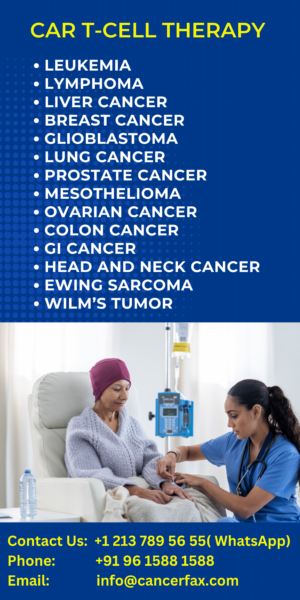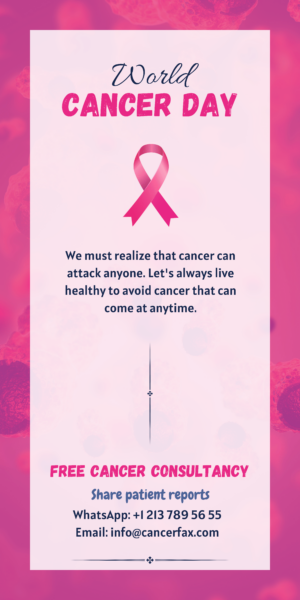Colon cancer
What is colon cancer?
Colon cancer is also known as colorectal cancer. Colorectal cancer is a cancer that starts in the rectum or colon. Both of these organs are in the lower portion of your digestive system. The colon is also known as the large intestine. The rectum is at the end of the colon.
Its important to know the extent of colon cancer so that proper treatment can be planned. Colon cancer is divided into 4 stages. Stage 1 is the earlier stage.
Stages of colon cancer
- Stage 1. The cancer has penetrated the lining, or mucosa, of the colon or rectum but hasn’t spread to the organ walls.
- Stage 2. The cancer has spread to the walls of the colon or rectum but hasn’t affected the lymph nodes or nearby tissues yet.
- Stage 3. The cancer has moved to the lymph nodes but not to other parts of the body yet. Usually, one to three lymph nodes are involved at this stage.
- Stage 4. The cancer has spread to other distant organs, such as the liver or lungs.
Types of colon cancer
While colorectal cancer sounds clear-cut, there’s actually more than one type of cancer. Such differences have to do with the types of cells that turn cancerous as well as where they form.
The most common type of colon cancer starts from adenocarcinomas. According to the American Cancer Society, adenocarcinomas make up 96 percent of all colon cancer cases. Unless your doctor specifies otherwise, your colon cancer is likely this type. Adenocarcinomas form within mucus cells in either the colon or rectum.
Less commonly, colorectal cancers are caused from other types of tumors, such as:
- lymphomas, which can form in lymph nodes or in the colon first
- carcinoids, which start in hormone-making cells within your intestines
- sarcomas, which form in soft tissues such as muscles in the colon
- gastrointestinal stromal tumors, which can start off as benign and then become cancerous (These usually form in the digestive tract, but rarely in the colon.)
Causes of colon cancer
Doctors aren’t certain what causes most colon cancers.
In general, colon cancer begins when healthy cells in the colon develop changes (mutations) in their DNA. A cell’s DNA contains a set of instructions that tell a cell what to do.
Healthy cells grow and divide in an orderly way to keep your body functioning normally. But when a cell’s DNA is damaged and becomes cancerous, cells continue to divide — even when new cells aren’t needed. As the cells accumulate, they form a tumor.
With time, the cancer cells can grow to invade and destroy normal tissue nearby. And cancerous cells can travel to other parts of the body to form deposits there (metastasis).
Researchers are still studying the causes of colorectal cancer. While there’s a growing list of risk factors, they act alone or in combination to increase one’s risk for developing colorectal cancer.
Precancerous growths
Abnormal cells accumulate in the lining of the colon, forming polyps. These are small, benign growths. Removing these growths through surgery is a common preventive method. Untreated polyps can become cancerous.
Gene mutations
Sometimes colorectal cancer occurs in family members. This is due to a gene mutation that passes from parent to child. These mutations don’t guarantee you’ll develop colorectal cancer, but they do increase your chances.
Risk factors for colon cancer
The exact cause of colorectal cancer is unknown. Physicians often cannot explain why one person develops this disease and another does not. However, the understanding of certain genetic causes continues to increase. The following factors can increase one’s risk of colorectal cancer.
- Age: More than 90% of people are diagnosed with colorectal cancer after age 50.
- Family history of colorectal cancer (especially parents or siblings).
- Personal history of Crohn’s disease or ulcerative colitis for eight years or longer.
- Colorectal polyps.
- Personal history of breast, uterine or ovarian cancer.
Some other unavoidable risk factors are:
- a prior history of colon polyps
- a prior history of bowel diseases
- a family history of colorectal cancer
- having a genetic syndrome, such as familial adenomatous polyposis (FAP)
- being of Eastern European Jewish or African descent
Avoidable factors
Other risk factors are avoidable. This means you can change them to decrease your risk of developing colorectal cancer. Avoidable risk factors include:
- being overweight or obese
- smoking
- heavy drinking of alcohol
- having type 2 diabetes
- having a sedentary lifestyle
- consuming a diet high in processed foods or red meats
Factors that may increase your risk of colon cancer include:
- Older age. Colon cancer can be diagnosed at any age, but a majority of people with colon cancer are older than 50. The rates of colon cancer in people younger than 50 have been increasing, but doctors aren’t sure why.
- African-American race. African-Americans have a greater risk of colon cancer than do people of other races.
- A personal history of colorectal cancer or polyps. If you’ve already had colon cancer or noncancerous colon polyps, you have a greater risk of colon cancer in the future.
- Inflammatory intestinal conditions. Chronic inflammatory diseases of the colon, such as ulcerative colitis and Crohn’s disease, can increase your risk of colon cancer.
- Inherited syndromes that increase colon cancer risk. Some gene mutations passed through generations of your family can increase your risk of colon cancer significantly. Only a small percentage of colon cancers are linked to inherited genes. The most common inherited syndromes that increase colon cancer risk are familial adenomatous polyposis (FAP) and Lynch syndrome, which is also known as hereditary nonpolyposis colorectal cancer (HNPCC).
- Family history of colon cancer. You’re more likely to develop colon cancer if you have a blood relative who has had the disease. If more than one family member has colon cancer or rectal cancer, your risk is even greater.
- Low-fiber, high-fat diet. Colon cancer and rectal cancer may be associated with a typical Western diet, which is low in fiber and high in fat and calories. Research in this area has had mixed results. Some studies have found an increased risk of colon cancer in people who eat diets high in red meat and processed meat.
- A sedentary lifestyle. People who are inactive are more likely to develop colon cancer. Getting regular physical activity may reduce your risk of colon cancer.
- Diabetes. People with diabetes or insulin resistance have an increased risk of colon cancer.
- Obesity. People who are obese have an increased risk of colon cancer and an increased risk of dying of colon cancer when compared with people considered normal weight.
- Smoking. People who smoke may have an increased risk of colon cancer.
- Alcohol. Heavy use of alcohol increases your risk of colon cancer.
- Radiation therapy for cancer. Radiation therapy directed at the abdomen to treat previous cancers increases the risk of colon cancer.
Diagnosis of colon cancer
An early diagnosis of colorectal cancer gives you the best chance of curing it.
Your doctor will start by getting information about your medical and family history. They’ll also perform a physical exam. They may press on your abdomen or perform a rectal exam to determine the presence of lumps or polyps.
Blood testing
Your doctor may run some blood tests to get a better idea of what’s causing your symptoms. Though there’s no blood test that specifically checks for colorectal cancer, liver function tests and complete blood count tests can rule out other diseases and disorders.
Colonoscopy
A colonoscopy involves the use of a long tube with a small, attached camera. This procedure allows your doctor to see inside your colon and rectum to check for anything unusual.
During a colonoscopy, your doctor can also remove tissue from abnormal areas. These tissue samples can then be sent to a laboratory for analysis.
X-ray
Your doctor may order an X-ray using a radioactive contrast solution that contains the metallic element barium. Your doctor will insert this liquid into your bowels through the use of an enema. Once in place, the barium solution coats the lining of the colon. This helps improve the quality of the X-ray images.
CT scan
CT scans provide your doctor with a detailed image of your colon. When used in diagnosing colorectal cancer, another name for a CT scan is a virtual colonoscopy.
What are the treatment options for colorectal cancer?
Treatment of colorectal cancer depends on a variety of factors. The state of your overall health and the stage of your colorectal cancer will help your doctor create a treatment plan.
Surgery
In the earliest stages of colorectal cancer, it might be possible for your surgeon to remove cancerous polyps through surgery. If the polyp hasn’t attached to the wall of the bowels, you’ll likely have an excellent outlook.
If your cancer has spread into your bowel walls, your surgeon may need to remove a portion of the colon or rectum, along with any neighboring lymph nodes. If at all possible, your surgeon will reattach the remaining healthy portion of the colon to the rectum.
If this isn’t possible, they may perform a colostomy. This involves creating an opening in the abdominal wall for the removal of waste. A colostomy may be temporary or permanent.
Chemotherapy
Chemotherapy involves the use of drugs to kill cancer cells. In the case of colorectal cancer, chemotherapy is a common treatment after surgery to destroy any remaining cancerous cells. Chemotherapy also controls the growth of tumors.
While chemotherapy provides some symptom relief in late-stage cancer, it often comes with side effects that need to be controlled with additional medication.
Radiation
Radiation uses a powerful beam of energy, similar to that used in X-rays, to target and destroy cancerous cells before and after surgery. Radiation therapy commonly occurs alongside chemotherapy.
Medication
In September 2012, the U.S. Food and Drug Administration Trusted Source approved the drug regorafenib (Stivarga) to treat metastatic, or late-stage, colorectal cancer that doesn’t respond to other types of treatment and has spread to other parts of the body. This drug works by blocking enzymes that promote the growth of cancer cells.
KEY POINTS
- There are different types of treatment for patients with colon cancer.
- Seven types of standard treatment are used:
- Surgery
- Radiofrequency ablation
- Cryosurgery
- Chemotherapy
- Radiation therapy
- Targeted therapy
- Immunotherapy
- New types of treatment are being tested in clinical trials.
- Treatment for colon cancer may cause side effects.
- Patients may want to think about taking part in a clinical trial.
- Patients can enter clinical trials before, during, or after starting their cancer treatment.
- Follow-up tests may be needed.
Colon cancer surgery
Surgery (removing the cancer in an operation) is the most common treatment for all stages of colon cancer. A doctor may remove the cancer using one of the following types of surgery:
- Local excision: If the cancer is found at a very early stage, the doctor may remove it without cutting through the abdominal wall. Instead, the doctor may put a tube with a cutting tool through the rectum into the colon and cut the cancer out. This is called a local excision. If the cancer is found in a polyp (a small bulging area of tissue), the operation is called a polypectomy.
- Resection of the colon with anastomosis: If the cancer is larger, the doctor will perform a partial colectomy (removing the cancer and a small amount of healthy tissue around it). The doctor may then perform an anastomosis (sewing the healthy parts of the colon together). The doctor will also usually remove lymph nodes near the colon and examine them under a microscope to see whether they contain cancer.
Resection of the colon with colostomy: If the doctor is not able to sew the 2 ends of the colon back together, a stoma (an opening) is made on the outside of the body for waste to pass through. This procedure is called a colostomy. A bag is placed around the stoma to collect the waste. Sometimes the colostomy is needed only until the lower colon has healed, and then it can be reversed. If the doctor needs to remove the entire lower colon, however, the colostomy may be permanent.
After the doctor removes all the cancer that can be seen at the time of the surgery, some patients may be given chemotherapy or radiation therapy after surgery to kill any cancer cells that are left. Treatment given after the surgery, to lower the risk that the cancer will come back, is called adjuvant therapy.
Radiofrequency ablation
Radiofrequency ablation is the use of a special probe with tiny electrodes that kill cancer cells. Sometimes the probe is inserted directly through the skin and only local anesthesia is needed. In other cases, the probe is inserted through an incision in the abdomen. This is done in the hospital with general anesthesia.
Cryosurgery
Cryosurgery is a treatment that uses an instrument to freeze and destroy abnormal tissue. This type of treatment is also called cryotherapy.
Prognosis of colon cancer
Having a colorectal cancer diagnosis can be frightening, but the fact is that this type of cancer is extremely treatable, especially when caught early.
Treatment measures have also come a long way for more advanced cases of colon cancer. According to the University of Texas Southwestern Medical Center, the average survival rate for stage 4 colon cancer is around 30 months. This is up from the 6 to 8 months that was the average during the 1990s.
At the same time, doctors are now seeing colon cancer in younger patients. This is likely due to poor lifestyle choices that are more common than decades earlier. The American Cancer Society says that, while colon cancer deaths have decreased overall, related deaths in patients younger than 55 have increased 1 percent per year between 2007 and 2016.
Prevention of colon cancer
Certain risk factors for colon cancer, such as family history and age, aren’t preventable. However, lifestyle factors that may contribute colorectal cancer are preventable, and may help reduce your overall risk of developing this disease.
You can take steps now to reduce your risk by:
- decreasing the amount of red meat you eat
- avoiding processed meats, such as hot dogs and deli meats
- eating more plant-based foods
- decreasing dietary fat in your diet
- exercising daily
- losing weight, if your doctor recommends it
- quitting smoking
- reducing alcohol consumption
- decreasing stress
- controlling preexisting diabetes
Another preventive measure is to make sure you get a colonoscopy after the age of 50 — even if you don’t have risk factors for colon cancer. The earlier the cancer is detected, the better the outcome.
For details on colon cancer treatment and second opinion, do call us at +91 96 1588 1588 or write to cancerfax@gmail.com.
- Comments Closed
- July 28th, 2020









Privacy Overview